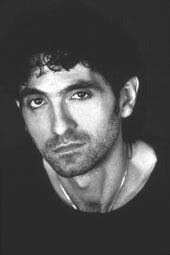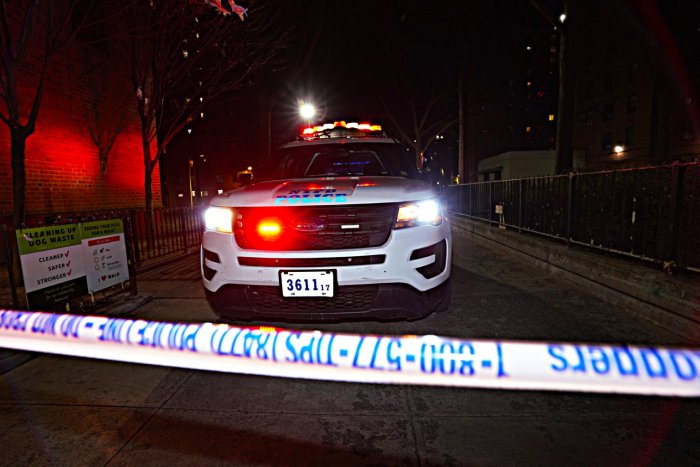By Davida Singer
Dance Theatre Workshop has ordered up bizarre humor to accent the turkey for Thanksgiving, when the “re-imagined remounting” of Ain Gordon’s ‘Epic Family Epic or the Hell Family Supper’ opens in late November.
Originally done at DTW in 1988, ‘Epic Family Epic’ was created in collaboration with ‘Hands On,’ a sign language performance company.
“I was asked to redo the show when they were planning the new DTW space a few years ago,” says Gordon. “I never remounted anything I did, but this was one piece I was interested in going back to. Why? It’s from the first part of my career, when I was doing more performance work than plays.”
Gordon got his writing start while still a tech-y at DTW in 1985, when he suggested to Executive Director David White that they create a writers’ showcase. White agreed, but challenged Gordon to be part of it, so he went home and “made up a style.”
“I had run-on sentences, no proper nouns, very Gertrude Stein-ish,” he recalls. “But the piece – “It’s All Talk” went well and got some press. I’ve been writing ever since.”
He’s also gotten lots more press. Gordon’s work has been performed at ACT in San Francisco, Jacob’s Pillow, Mark Taper Forum and The Public Theater, and he’s won two Obies for “The Family Business” (1994) and “Wally’s Ghost” (1996).
“Epic Family Epic” was his second full length, and the first time “the inescapable, unbearable intimacy of family” which runs through much of his work, showed up as a theme. Although the revamped version is condensed, Gordon finds it angrier and more powerful than before, and he’s even cast his own mother, actress Valda Setterfield, in the mother’s role.
“The plot involves the Thanksgiving dinner of the Hell family,” he said. “Each person’s body is inhabited by five relatives. There are conjoined twins-separated in the womb-whose mother ran off. They haven’t seen their family until now when they decide to have a reunion – disguised as cousins – and find out who they are. It’s a furious, zany comedy. We’ve even got a set made up of a hundred TV tables.”
And how did Hands On get involved?
“DTW had a relationship with Hands On to do signing of shows,” says Gordon. “At my first performance of “Epic Family Epic”, they were on the side and I didn’t like that, so I blocked them into the staging. The next year they were part of the show, and eventually they became characters. It seemed to me that American signing is dramatic and visceral as spoken language can’t be. My fascination was about language, and the show is about miscommunication, so why not two languages where families can’t understand each other. It was an artistic outgrowth. In this version, there are deaf characters, one who signs and speaks and one who signs only.”
The most challenging aspect of the writer/director’s new and improved “Epic” has been granting himself permission to do whatever he wants, just as he did in 1988.
“It was so natural the first time,” he notes. “I was only 23 and had nothing to lose. It wasn’t easy now, but I’ve gone even further than I did. There’s more mess, more risk here because now I have the tools to see what I was blindly getting at then.”
“The real essence of the piece is the dichotomy of how important family is, and how impossibly difficult they are,” he adds. “And that’s a set-up for how it will go in your life-lovers and all. If you’re lucky, it balances out. I see comedy and tragedy and I always make jokes, but I hope people don’t forget that all those people sitting around the turkey were you before they pinched your cheek and became annoying. So watch out – don’t separate and lose sense of who you’re being or the world you’re part of.”




































